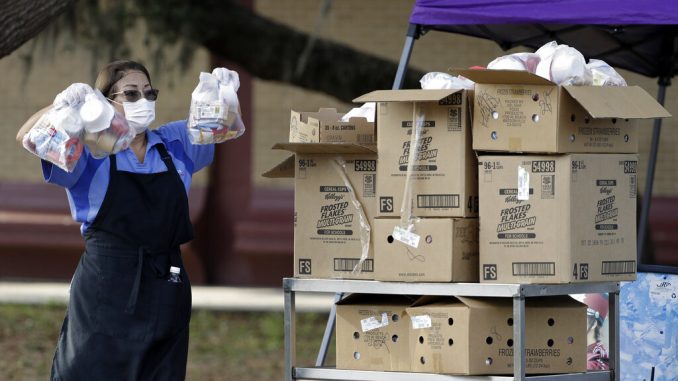

 In the fog of a pandemic, look no further than your local educators who are spreading hope and light through the valley of this crisis. Our educational leaders continue to make an impact in the midst of these uncertain times. Whether it is parading by a student’s home in their car to feel connected or coordinating online meetings so students can interact with classmates, they’re leading the charge to stay connected while being physically apart.
In the fog of a pandemic, look no further than your local educators who are spreading hope and light through the valley of this crisis. Our educational leaders continue to make an impact in the midst of these uncertain times. Whether it is parading by a student’s home in their car to feel connected or coordinating online meetings so students can interact with classmates, they’re leading the charge to stay connected while being physically apart.
This new, forced reality is also presenting unique challenges: transitioning to online instruction at all levels, ensuring children have access to free meals, and managing new demands on our teachers. These challenges are not unique to North Carolina, but we believe our front-line response in education is following the lead of local tenacity and innovation.
This crisis has revealed the character of those who serve our students. Nutrition workers and bus drivers are coordinating delivering meals and schoolwork packets to students while also setting up internet hot spots to meet connectivity needs.
In Guilford County the nonprofit community worked hand-in-hand with passionate education leaders to deliver thousands of computers within five days. In Watauga County schools, retired teachers have been endlessly sewing masks for the workers that remain in contact with our students or other staff members.
Our NC Community College System is highlighting its own contributions and donating PPE gear and ventilators, while our UNC System and private universities continue to strengthen their digital foundation to ensure students can complete their degrees.
This pivot to online learning has given educators and policymakers a new window into the digital divide facing our students. This crisis reveals a much sharper image of what the needs are and the opportunities we have to close the homework gap – whether it be access to digital devices or accessibility to high-speed internet. Every student deserves the opportunity to continue to learn during this time, and expanded broadband is key to ensuring equitable opportunity for children to access learning.
Additionally, this unique time shows the profound connection between a child’s home and her performance in the classroom. Having teachers become virtual guests in a student’s home can give them a better understanding of what influences a student’s learning. This reminds us of the vital role quality instruction, whether in-person or online, plays in student success. And families have the chance to see an educator’s encouragement that so often gets lost in the shuffle of daily life outside the classroom.
This experience reiterates our appreciation for the physical connections that nourish our students. While there may be some fear that the sudden switch to online learning lasts, the exact opposite is true.
The longer we are apart, the more palpable our hunger to be together is. The longer we are apart, the more grateful we are for the gift of physical connection that binds us. Our schools and colleges will open again. When they do, they will welcome students, teachers, faculty, and staff who share a renewed sense of mission and celebration.
We cannot underplay the gravity of the current crisis or pretend it hasn’t been profoundly disruptive – it has. What we did not anticipate, and what we don’t want us to lose in the midst of this, is how our state is refined by this fire.
We are proving ourselves to be determined, optimistic, and resourceful with a deeply rooted commitment to our students. North Carolina is poised to strengthen its education system, renewing our commitment to each and every child in our state. But as we look to our future, we have to shift our mindset and reinvent our instructional methods, so we can weather future storms.
Coronavirus may be spreading, but we believe hope and forward-thinking are spreading faster.
Senator Deanna Ballard is a Republican representing Alleghany, Ashe, Surry, Watauga, and Wilkes counties. She is a chair of the Senate Education Committee.
Representative Ashton Clemmons is a Democrat representing Guilford County.



